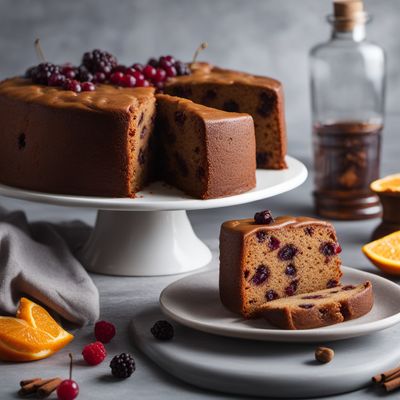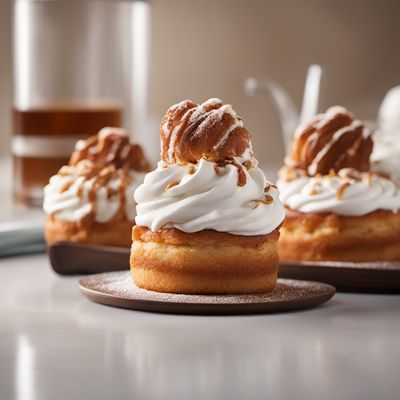
Ingredient
Whisky
The Golden Elixir
Whisky, also spelled whiskey, is a distilled alcoholic beverage made from fermented grain mash. It is aged in wooden casks, which imparts unique flavors and aromas. With its rich heritage and complex flavor profiles ranging from smoky and peaty to fruity and floral, whisky is enjoyed by connoisseurs and enthusiasts worldwide.
Origins and history
Whisky has a long history that dates back centuries. It originated in Scotland and Ireland, where it was initially used for medicinal purposes. Over time, whisky production evolved into an art form, with different regions and countries developing their own distinct styles and techniques. Today, whisky is produced in various countries, including Scotland, Ireland, the United States, Canada, and Japan.
Nutritional information
Whisky is a calorie-dense beverage, with an average of 100-120 calories per 1.5-ounce (44 ml) serving. It contains no fat or cholesterol but does provide a small amount of carbohydrates. The nutritional content may vary slightly depending on the specific type and brand of whisky.
Allergens
Whisky does not contain any known allergens. However, individuals with alcohol intolerance or allergies should avoid consuming whisky or any alcoholic beverages.
How to select
When selecting whisky, consider factors such as the type of grain used, the region of production, and the age statement. Different grains, such as barley, corn, rye, or wheat, contribute to distinct flavor profiles. Whiskies from different regions, such as Scotch whisky or bourbon, have their own unique characteristics. Age statements indicate the minimum number of years the whisky has been aged, with older whiskies often exhibiting more complexity and depth of flavor.
Storage recommendations
To maintain the quality of whisky, store it upright in a cool, dark place away from direct sunlight and extreme temperature fluctuations. Avoid storing whisky near strong-smelling substances, as it can absorb odors. Once opened, consume the whisky within a reasonable time frame to prevent oxidation and flavor degradation.
How to produce
Whisky production requires specialized equipment and expertise, making it challenging for amateurs to produce at home. However, individuals can experiment with aging spirits or infusing flavors into existing whiskies to create unique blends or cocktails.
Preparation tips
Whisky can be enjoyed neat, on the rocks, or as a key ingredient in various cocktails. Classic whisky cocktails include the Old Fashioned, Manhattan, Whisky Sour, and Mint Julep. It can also be used in cooking and baking to add depth of flavor to dishes like sauces, marinades, and desserts.
Culinary uses
Whisky is widely used in the production of cocktails and enjoyed neat or on the rocks. It is a staple in classic cocktails like the Old Fashioned, Manhattan, and Whisky Sour. Whisky is also a popular choice for sipping and savoring its complex flavors.
Availability
Whisky is produced in various countries, including Scotland, Ireland, the United States, Canada, Japan, and many others. Each country has its own regulations and traditions regarding whisky production. It is commonly available in liquor stores, bars, and restaurants worldwide.
More ingredients from this category
Recipes using Whisky » Browse all

Ecclefechan Butter Tart
Golden Delight: A Decadent Twist on British Butter Tart

Soulful Pavlova
Southern Charm Pavlova

Northern Irish Green Chile Cheeseburger
Spicy Irish Delight: Northern Irish Green Chile Cheeseburger

Black Bun Recipe
Hearty Scottish Delight: Black Bun

Scottish-inspired Kamameshi with Smoked Salmon and Whisky
Whisky-infused Scottish Kamameshi: A Smoky Twist on a Japanese Classic

Scottish Whisky Fruit Cake
Whisky-infused Delight: A Scottish Fruit Cake Recipe

Kentucky Fried Ice Cream Brioche
Southern Twist on Italian Delight: Kentucky Fried Ice Cream Brioche

Bourbon Bliss
Decadent Bourbon Bliss: A Sweet Delight from the American South

Irish Whiskey-Glazed Chicken
Whiskey-infused Chicken Delight

Stornoway Black Pudding with Caramelized Apples and Whisky Sauce
Savory Delight: Stornoway Black Pudding with Whisky-infused Apples

Whisky-Glazed Pork Tenderloin
Smoky Spanish Delight: Whisky-Glazed Pork Tenderloin

Kentucky-style Meatball Soup
Southern Comfort Meatball Soup


